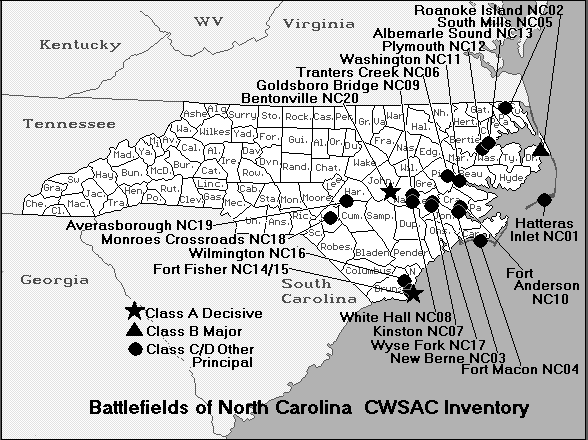|
Brigade, Division, Corps, and Army Assignments:
54th North Carolina Infantry Regiment
|
|
|
|
|
|
|
|
|
|
| Sep 1862 |
Nov 1862 |
Unattached |
|
|
Dept of NC and South Virginia |
|
|
|
| Nov 1862 |
Jun 1863 |
Trimble's/Hoke's |
Ewell's/Early's |
2nd |
Army of Northern Virginia |
|
|
|
| Jun 1863 |
Aug 1863 |
* |
|
|
|
|
|
|
| Aug 1863 |
Jan 1864 |
Trimble's/Hoke's |
Ewell's/Early's |
2nd |
Army of Northern Virginia |
|
|
|
| Jan 1864 |
May 1864 |
Hoke's |
|
|
Dept of North Carolina |
|
|
|
| May 1864 |
May 1864 |
Hoke's |
Ransom's |
|
Dept of NC and South Virginia |
|
|
|
| May 1864 |
Jun 1864 |
Hoke's/Lewis' |
Early's/Ramseur's |
2nd |
Army of Northern Virginia |
|
|
|
| Jun 1864 |
Dec 1864 |
Lewis'/Godwin's |
Ramseur's/Pegram's |
Valley Dist |
Dept of Northern Virginia |
|
|
|
| Dec 1864 |
Apr 1865 |
Godwin's/Lewis' |
Pegram's |
2nd |
Army of Northern Virginia |
* Escorting POWs
| 54th North Carolina Infantry Regiment |

|
| 54th North Carolina Infantry Regiment |
Recommended Reading: Lieutenant General Jubal Anderson Early:
Autobiographical Sketch And Narrative Of The War Between The States (1912) (548 pages). Description: General Early, referred
to as "Old Jube," was well-known for his fighting prowess in the Valley Campaigns of 1864 and his attempt to capture
Washington. In Early's own words, he reflects on the battles of the war, as well as the war itself. The 54th
North Carolina served under his command for most of the Civil War. Continued.
It begins with Early's account of his attempts to thwart Virginia's
secession attempts, his failure in that endeavor, and his decision to join the Confederate army. He then describes his military
experiences, the typical lives of soldiers, his responsibilities as an officer, and several military engagements. The final
chapter includes a letter from General Robert E. Lee and the editor's summary of Early's life after the war ended in 1865.
Early's Autobiographical Sketch and other writings proved to play a very important historical role; in fact in American
National Biography, Gary Gallagher asserts, "No person North or South did more to influence nineteenth-century historiography
of the Civil War."
|

